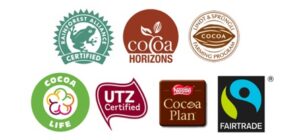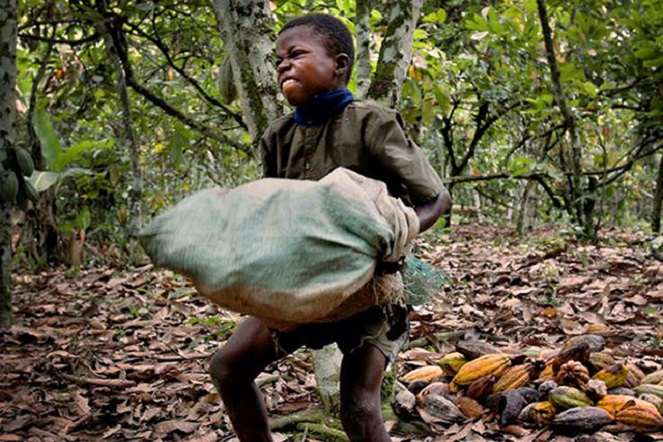For many of us, Easter is a happy holiday spent with friends, family and overdosing on chocolate eggs. For approximately two million child-labour victims (that’s one quarter of all children aged 5 to 17 living in cocoa-growing regions) who work in cocoa farming, this is not the case.
Child labourers, who work for little or no wage, are exploited to farm the cacao bean (more commonly known as cocoa) which is usually found in Western African countries, like Ghana and the Ivory Coast, where more than 70% of the world’s cocoa supply comes from. The cocoa farming trade has been deeply secretive since various journalists and organisations have exposed their practices, which can include slavery and child labour.
The Poverty Cycle
The poverty cycle is dangerous. Cocoa farmers generate an extremely low income, which leaves them little resources to support and sustain a healthy workforce. Instead, severe violations of workers’ human and labour rights occur. The working conditions are unsafe; workers have no protective gear to handle pesticides. They work very long hours and use dangerous tools. Insufficient salaries are all the cocoa farmers can afford to pay their workers. A report by Tulane University suggests that only 5% of children working at cocoa farms on the Ivory Coast receive compensation for their labour.
“Child labour is caused by poverty. If the chocolate industry takes its promise seriously to reduce child labor by 70 percent till 2020, they have to get cocoa farmers out of extreme poverty”, said Evelyn Bahn, coordinator of the Make Chocolate Fair! campaign.
Children are employed or bought to decrease the labour cost for cocoa farms. This ultimately occurs as a result of the poverty cycle. Children often grow up surrounded by poverty and join the workforce at a young age to support their families. Many of them children do not attend school. The number of children working in these farms increased by almost 360 000 from 2010 to 2015.

Abusive Work Conditions
The Tulane report also claims that more than 500 000 of the two million children working in these farms experience abuse. They are beaten and whipped for working too slowly. They use dangerous equipment, like machetes and chainsaws, carry heavy loads and work with harmful pesticides without protection. Some children come to work with their families and abandon their education as a result. Other children are bought from neighbouring countries or abducted. Most of the children working in cocoa farms are aged between 12 and 16, but some as young as five have been discovered.
The children are fed poorly and often suffer with nutrition difficulties. They do not always have access to clean water and sanitation.
Sustainable Chocolate
Following the exposure of the inhumane cocoa farming practices, several chocolate companies have stepped up to only manufacture chocolate which aims to keep children out of dangerous work – although it is sometimes difficult to be certain whether a chocolate has been made using exploited labour. Divine chocolate is currently the only fair-trade-certified chocolate owned by its cocoa farmers. This means the farmers earn a share of the profit. They can put this toward providing a safe, fair workplace for their labourers and not have to employ children. They can also have a voice in the global marketplace. World Vision have published The Good Chocolate Guide, which outlines companies offering ethical chocolate. Cadbury, Divine and Oxfam chocolate are several of those named.

Have an Ethical Easter in 2018
By purchasing chocolate that is free from the use of child and slave labour, we are helping to make a difference. It is imperative we are aware of the human cost of the products we buy. Additionally, we can choose Easter products free from palm oil. Palm oil farming is a huge cause of deforestation which is endangering animals like the Sumatran tiger and Malayan sun bear.
Take a step back and think about where you’re buying your chocolate from.

